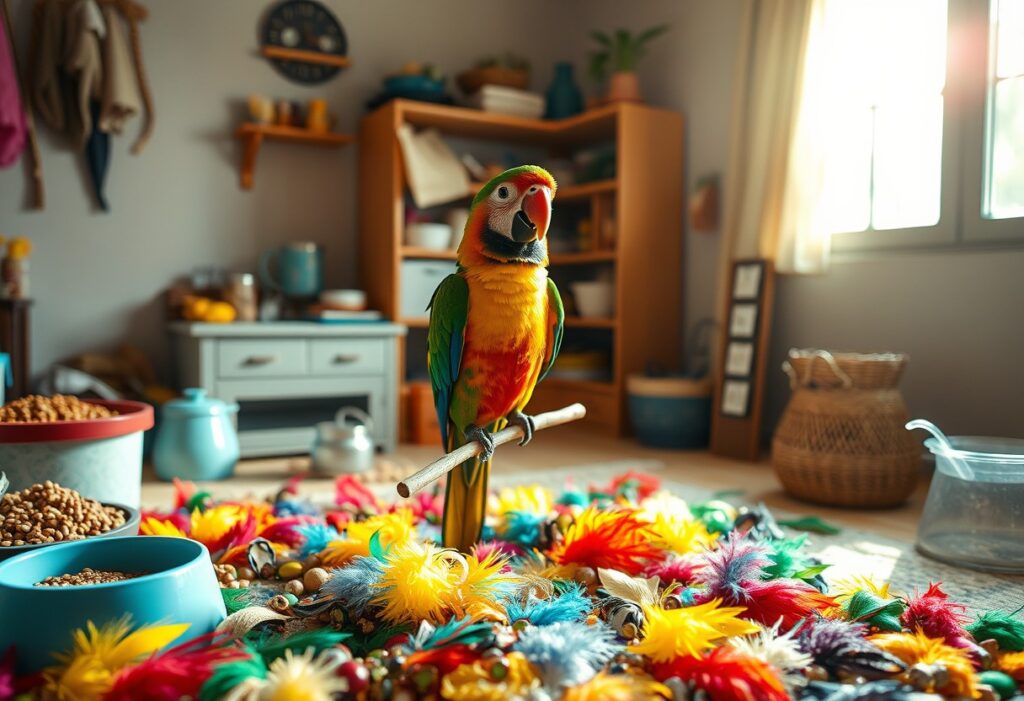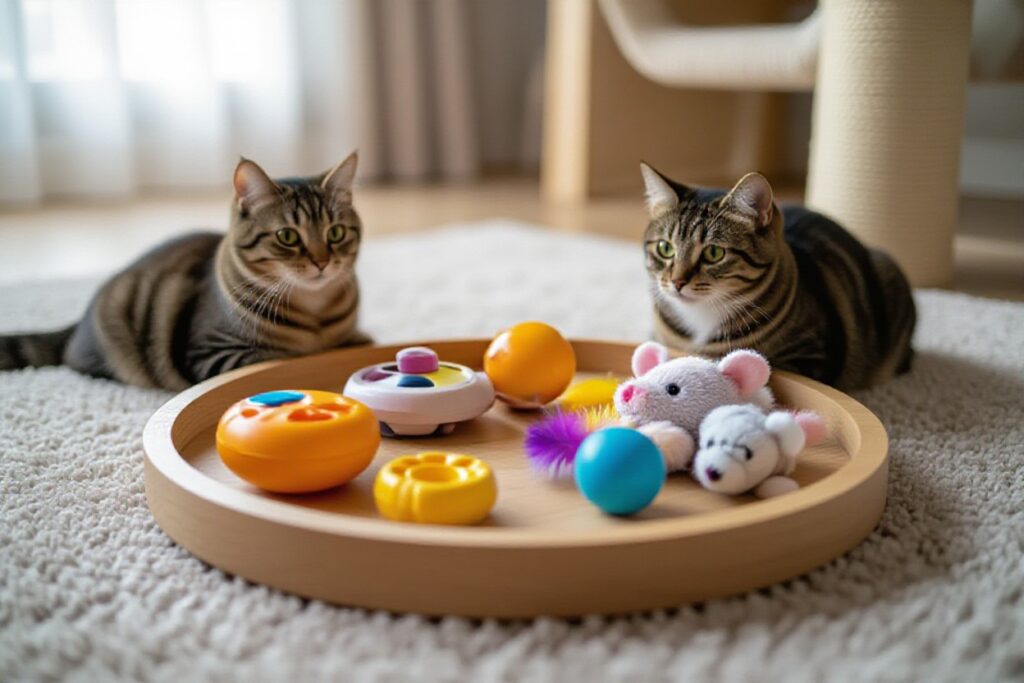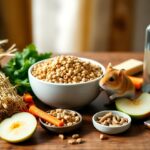Most bird owners experience the challenges of molting season, a crucial period when your feathered friend sheds old feathers to make way for new growth. Understanding how to support your bird during this time is crucial for their health and well-being. Proper care can make this natural process more comfortable, allowing your bird to maintain its energy levels and overall mood. In this guide, you’ll learn effective strategies to assist your pet while making their molting experience as stress-free as possible.
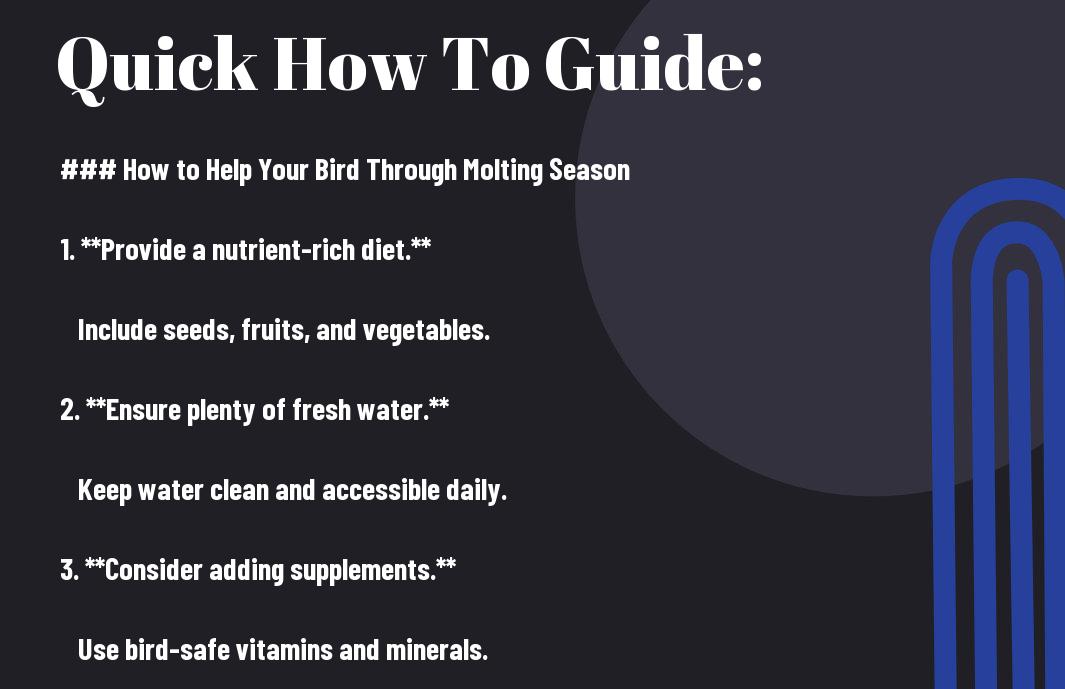
Understanding Molting Season
A key aspect of avian care is understanding the natural processes your feathered friend undergoes, particularly during molting season. This period, when birds shed their old feathers and grow new ones, is not only vital for their *health* but also for their *appearance*. During molting, various factors—like species, age, and environmental conditions—come into play. It’s vital to recognize these changes and provide the right care so your bird emerges from this phase *healthy* and *vibrant*.
What is Molting?
Any bird lover should be aware that molting is a normal biological process where birds *replace old feathers* with new ones. This typically occurs once or twice a year, depending on the species and environmental factors. The purpose of molting is to maintain *insulation*, improve *aerodynamics*, and ultimately promote *better overall health*. It allows your bird to regain a fresh appearance, which can be crucial for mating and social interactions.
Signs of Molting in Birds
One of the easiest ways to tell if your bird is undergoing molting is by observing various physical signs. You might notice an increase in *feather loss*, a *change in behavior*, or even a change in their *song* or *vocalizations*. As new feathers begin to push through, it’s common for birds to become a little more irritable or moody than usual.
Signs of molting can vary, but they often include excessive feather *shedding*, the presence of *pin feathers* on the bird’s body, and a general *change in energy levels*. It’s important to be patient and attentive during this time, as your bird needs support and comfort to navigate this natural phase.
Factors Influencing Molting
Little do many bird owners realize that a variety of factors can influence the timing and extent of molting. The most significant factors include periods of *natural light*, *temperature*, and even *diet*. Birds often molt more vigorously in response to seasonal changes, particularly as daylight hours increase in spring and summer. Additionally, providing a well-balanced diet rich in vital nutrients can ensure that your bird has what it needs to grow strong, healthy feathers.
- Natural light
- Temperature
- Diet
- Seasonal changes
Recognizing these influencers can help you create a more supportive environment for your bird, enhancing their well-being during molting season.
Molting is a fascinating process, and understanding its influences can make a significant difference in your bird’s experience. Various factors also include *stress levels*, *age*, and *general health*. Stressful environments or illness can lead to *irregular molting patterns*, so ensuring your bird remains in a calm and healthy setting is paramount.
- Stress levels
- Age
- General health
Recognizing these elements allows you to support your bird more effectively during this critical period, ensuring they emerge healthy and ready to *shine*.
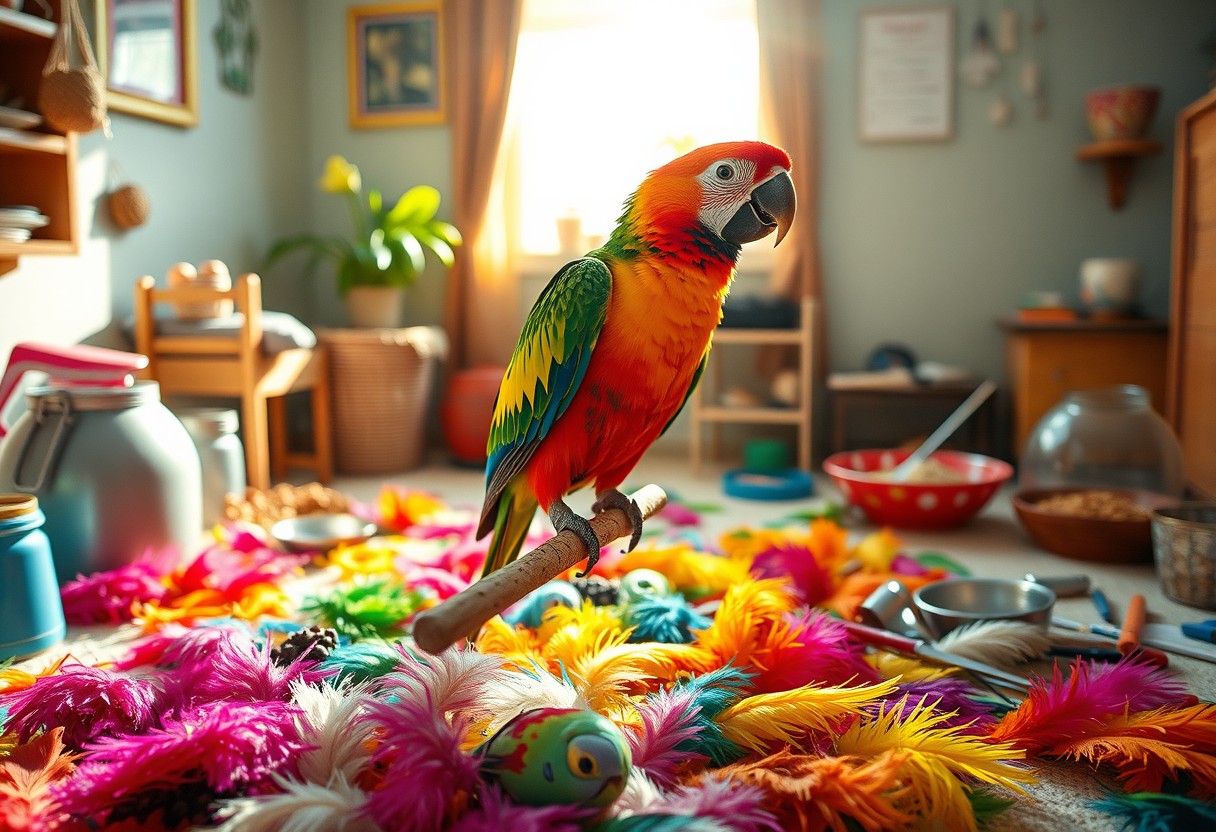
Tips for Helping Your Bird
Any bird owner knows the challenges that come with the molting season. During this time, your feathered friend requires extra care and support to navigate the changes in their body. Here are some helpful tips to assist your bird during this crucial period:
- Provide a balanced and nutritious diet.
- Ensure a comfortable and safe environment.
- Maintain a consistent routine to reduce stress.
- Engage your bird with toys and mental stimulation.
- Inspect their feathers regularly for signs of abnormality.
After implementing these strategies, you can help ensure a smoother molting process for your avian companion.
Nutritional Support
Some birds may struggle during their molt due to insufficient nutrients in their diet. During this time, it is crucial to provide a diverse diet rich in vitamins and minerals that support feather growth. High-quality pellets should form the basis of their diet, supplemented with fresh fruits, vegetables, and occasional protein sources like cooked eggs or mealworms. A diet rich in omega-3 fatty acids can also facilitate healthy feather production.
Additionally, consider adding specific dietary supplements designed for birds undergoing molting. These supplements usually contain crucial fatty acids, vitamins, and amino acids that can help them develop feathers more efficiently. Be sure to consult your avian veterinarian for advice tailored to your bird’s unique nutritional needs.
Environmental Considerations
Now, the environment in which your bird lives plays a significant role in their overall well-being during the molting season. It’s crucial to provide a calm and stable atmosphere that minimizes stressors. Start by ensuring that the light and temperature conditions are consistent, as fluctuations can lead to added stress during this sensitive time. Avoid excessive noise and sudden changes in their surroundings, which can be disruptive.
Creating a designated quiet space for your bird to retreat to can further help alleviate any anxiety. Incorporate natural sunlight and a well-furnished cage, with perches and hiding spots that allow your bird to feel secure. Be mindful of, a bird that feels safe and comfortable is better equipped to handle the physical demands of molting.
Support your bird’s environmental surroundings by regularly cleaning their habitat and providing stimulating activities. Consistent routines can help make your bird feel secure, allowing them to navigate the stress of molting more effectively.
Maintaining a Stress-Free Habitat
Some owners may overlook the importance of maintaining a stress-free habitat during molting. It’s crucial to establish a calm period for your bird each day, providing them with a space free from loud noises and aggressive interactions with other pets. Additionally, create an optimal cage setup that includes various perches and safe toys, allowing your bird to engage in natural behaviors while feeling secure.
Your bird’s emotional well-being is as important as their physical health, particularly during molting. Ensure they have routine opportunities for social interaction with you while also allowing for independent time in their cage. A balance of socialization and solitude can help alleviate stress during a typically uncomfortable time.
Regular Grooming Practices
With regular grooming, you can significantly ease the molting process for your bird. As your feathered friend sheds old feathers, they may need extra assistance to keep their new feathers healthy and clean. Regular baths or misting with water can help maintain proper feather condition. Providing a small shallow dish of water or using a misting spray can encourage your bird to bathe, promoting feather health during this crucial phase.
Additionally, pay close attention to their feathers during this time. Gently check for any signs of discomfort and be on the lookout for pin feathers, which are new feathers that may be painful as they emerge. If any feathers seem to be causing issues, consult with your avian veterinarian for guidance.
Maintaining your bird’s grooming routine will not only keep them physically healthy but will also give you the chance to bond with them during this delicate time of molting.
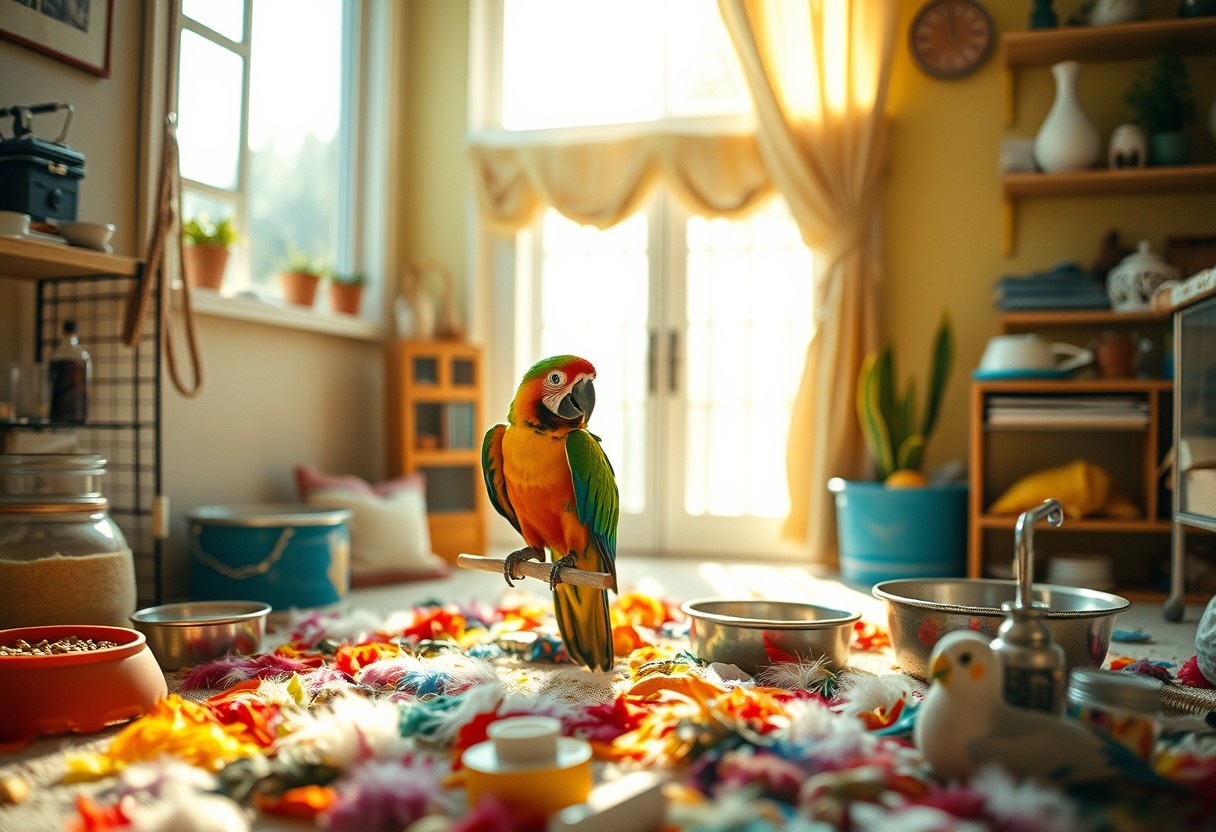
Monitoring Your Bird’s Health
Unlike many other pets, birds are notorious for masking their illness. As a bird owner, it’s crucial to stay vigilant and monitor your pet’s health closely during molting season. This crucial period can be stressful for your feathered friend, leading to potential health concerns that can arise if not addressed promptly. Understanding your bird’s normal behavior and appearance is key to spotting any changes that might indicate a problem.
Recognizing Abnormal Behavior
Even during molting, your bird should exhibit a stable and active demeanor. If you notice signs such as excessive lethargy, reduced vocalization, or lack of interest in food and play, these may be indicators that your bird is not feeling well. Additionally, abnormal feather plucking or excessive preening beyond regular molting behavior can signal discomfort or stress, necessitating your immediate attention.
When to Consult a Veterinarian
While it’s normal for birds to experience some challenges during molting, there are specific signs that should not be ignored. If you observe prolonged feather loss, blood in the droppings, persistent fluffed feathers, or any behavior that appears to be causing your bird distress, it’s crucial to consult a veterinarian as soon as possible. These may be signs of underlying health issues that require professional intervention.
Recognizing these warning signs early can make all the difference in your bird’s well-being. If your bird is showing any alarming behaviors or symptoms, do not hesitate to seek veterinary advice. Early diagnosis and treatment can prevent more serious issues from developing, allowing your beloved pet to transition through molting season with ease and comfort. Keeping your avian companion healthy and happy is your top priority, so make sure to keep a close eye on any changes that may suggest they need extra help.
Conclusion
With these considerations in mind, you can effectively support your bird through the often challenging molting season. It’s crucial to provide a nutrient-rich diet, as this will help strengthen feathers and support healthy regrowth. Ensure that your bird has access to fresh fruits, vegetables, and high-quality pellets tailored to their specific dietary needs. Additionally, maintaining a comfortable and stress-free environment is necessary; this means minimizing loud noises or sudden changes in routine to help your bird feel secure during this vulnerable time.
Remember to be patient and observant as your bird navigates through this natural process. Monitor their behavior for signs of stress or discomfort, and provide plenty of opportunities for social interaction, mental stimulation, and safe chew toys to keep them engaged. By being attentive to your bird’s needs and making necessary adjustments, you can help ease their discomfort and ensure that they emerge from molting season healthy, happy, and ready to flaunt their beautiful new feathers.
FAQ
Q: What is molting season, and how does it affect my bird?
A: Molting season is a natural process where birds shed old feathers to make way for new ones. This typically occurs once or twice a year, depending on the species and environmental factors. During this time, birds may experience changes in behavior, such as increased irritability or lethargy, as well as physical changes like feather loss. It’s important to observe your bird closely during this time, as they may need extra care and attention.
Q: What can I do to support my bird during molting season?
A: To support your bird through molting, ensure they have a balanced diet rich in nutrients, particularly protein, to help promote feather growth. Offering items like fresh fruits, vegetables, and high-quality pellets can be beneficial. Additionally, provide a calm and stress-free environment, as molting can be taxing on their energy levels. Regularly check for any signs of irritation on their skin or discomfort. Consider providing a safe space for them to bathe, as this can help soothe their skin and promote healthy feather growth.
Q: Are there any additional products or resources to help my bird through this process?
A: Yes, there are several products that can help your bird during molting season. Supplements such as flaxseed oil or Omega-3 fatty acids may support feather health. There are also specialized molting foods or treats available that include added vitamins and minerals. Regular vet check-ups are vital during this time to monitor your bird’s health, especially if they show unusual behavior or difficulty in the molting process. Providing enrichment activities, such as toys and foraging opportunities, can also minimize stress and keep their minds engaged during this transition.
